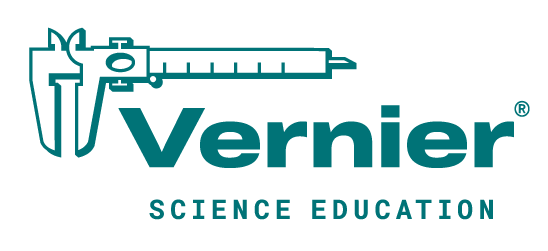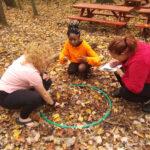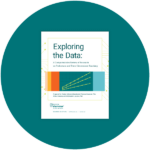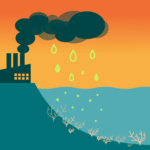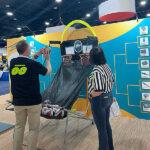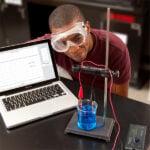
Sharing ideas and inspiration for engagement, inclusion, and excellence in STEM
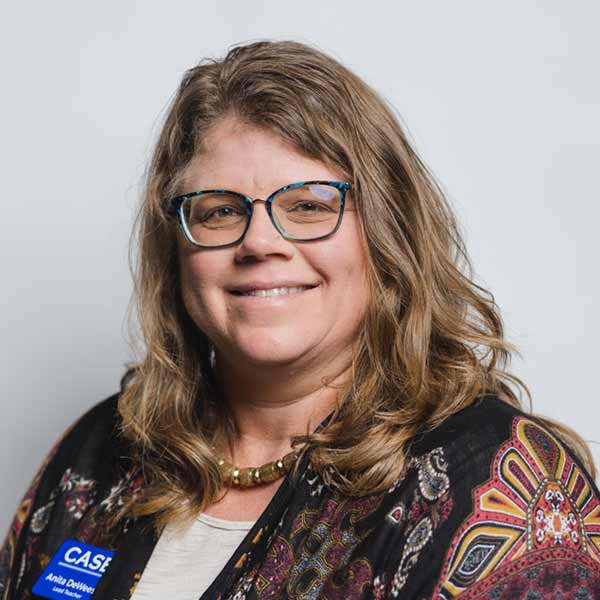
Bottle feeding baby lambs isn’t an everyday experience for most students in Anita DeWeese’s class at Skyline Schools in Kansas state. But thanks to her family farm, it’s one of the unique experiences DeWeese is able to bring to her agricultural science classroom to help bridge the gap between academic curriculum and the realities of farm life.
“When students actually get to be hands on with what they’ve learned—fertilizer, seed selection, soil moisture—it’s one thing to teach it, but for them to actually use the knowledge that they’ve learned, they tend to remember that.”
DeWeese, alongside her husband and children, has been managing their family farm in Pratt, Kansas, since 1994. Their operation includes diversified crops, like wheat, corn, and soybeans as well as a cow-calf operation. And many of the daily responsibilities of farm life are brand new to her students.
“They [students] are often surprised at the diversification that a farmer has to have—from being a bookkeeper to a veterinarian to a technician troubleshooting the tractor.”
“It’s so much more than just putting the seed in the ground and then waiting to harvest it. You have to have the math skills, the science skills, you have to be able to communicate well. It’s not just focusing on one specific area, but the vast knowledge that a farmer has to have to be successful.”
CASE Curriculum a Key Factor in the Agricultural Education Program Success
Transitioning into agricultural education wasn’t always a part of DeWeese’s plans. Although she was involved with the schools as a substitute teacher and bus driver, becoming the new ag teacher just sort of fell into her lap—after a midyear departure, Skyline needed someone to finish out the school year.
It wasn’t an easy transition at first. The agricultural education program was new—less than two years old—and didn’t have a standardized curriculum. DeWeese recalls, “I was just literally drowning… Several [teachers] in Kansas told me, ‘You need to look at becoming CASE certified.’ I valued their opinion. They were teachers who I looked up to.” With the support of her admin—a former ag teacher herself—DeWeese was able to participate in a summer CASE training in Montana.
“When I came back and I taught the AFNR (Ag, Food, & Natural Resources) course, my kids were engaged. I knew exactly what I was teaching. I had all the standards and I could share those with my admin. I even shared it with the other teachers. I was like, wow, I’ve got one course under my belt—I’m going to have to do something for my other classes.”
DeWeese now has a full educational toolbox at her disposal with a range of CASE certifications, including Food Science & Safety, Plant Science, Animal Science, AgXplore, and Agricultural Business Foundations. And that dedication didn’t go unnoticed—DeWeese was just recently recognized with the 2023 CASE Model Teacher of the Year Award, sponsored by Vernier Science Education.
Utilizing Vernier Technology in Agricultural Education
For much of the CASE agricultural curriculum, collecting and analyzing data with Vernier technology supports core learning objectives as well as building critical thinking and problem solving skills. And it’s something DeWeese’s students get excited about as well.
“Once they get to use Vernier sensors for the first time, my students always ask, ‘Are we using that again? When are we using that again?’ I see students of all levels getting totally engaged with it, because it’s something that’s hands-on, they can see and understand the data, and the Vernier equipment is so easy for them to use.”
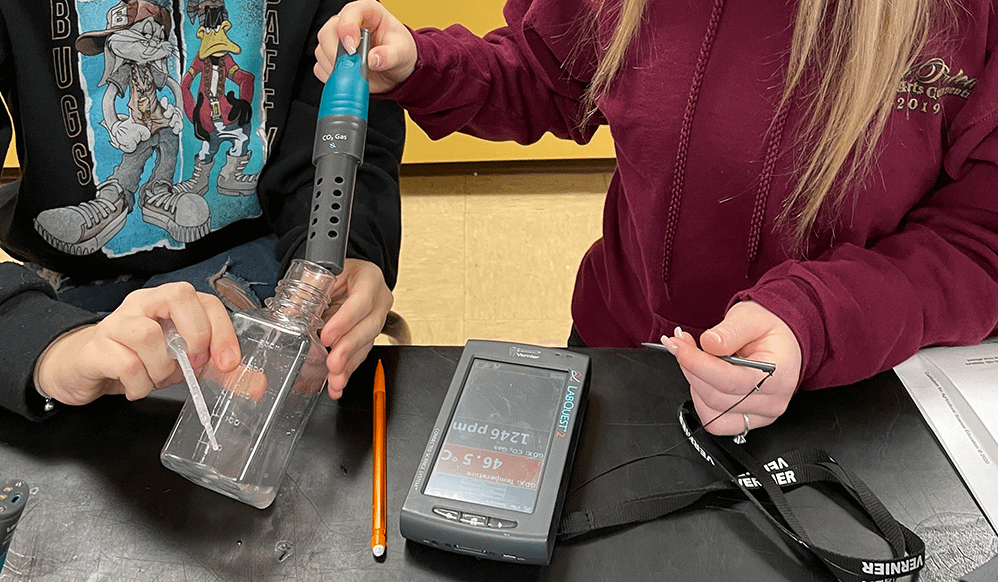
In one of her middle school classes, DeWeese’s students experiment with mulch in a garden planter to explore its effects on soil moisture and temperature. Even if it’s something as simple as a temperature sensor, DeWeese emphasizes that the data-collection tech helps students see exactly what’s happening—how the data changes and why there is a difference.
“Vernier sensors are very high-tech, but they’re easy to use. Some other methods of data collection can be intimidating—but when they’re using the Vernier tech, it really takes them through it step by step. I’ve not had a student who’s not been excited to use it. I’m always telling them that if they worked in a lab, these would be very similar to the sensors that you would be using to do research.”
DeWeese also shares how using Vernier technology promotes cross-disciplinary interest in her students. There is often overlap between her ag classes and the science curriculum, and her students get really excited when they recognize the themes and can implement what they’ve already learned.
Even in their math classes, DeWeese notes, “Students have told me they just thought those numbers are made up—but seeing it in the data and recognizing where it comes from, they get to carry that into math classes. It’s a real aha moment when the graphs suddenly make sense. The numbers mean something.”
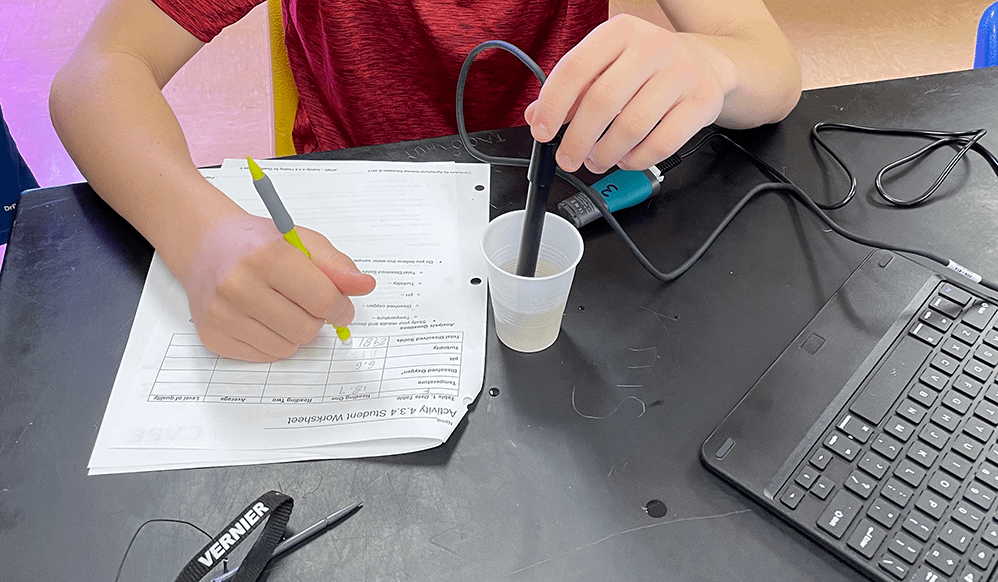
Outcomes and Applications Beyond Agriculture
While getting hands-on, practical experience with agricultural science is essential for students planning for careers within the industry, the concepts taught in these classes build universally valuable skills. Being able to interpret and analyze data is applicable across the board, whether students are going into the medical field, engineering—even if they’re not going to college, DeWeese points out, they need to be able to analyze something.
“There’s always going to be data, you may just not realize that it’s data. Whether it’s analyzing your budget or determining how much to feed your dog—these skills build students’ ability to make accurate predictions, make inferences, and exercise critical, logical thinking in so many situations.”
And developing those skills in real-world applications has notable outcomes. DeWeese shared that this year, the state assessment scores in science were higher than they’ve ever been for Skyline’s high school students. Eager to see if there was a connection between ag classes and the higher science scores, DeWeese and her admin looked into the data and discovered a direct connection between students who had taken two or more ag classes and science scores in state assessments, versus those who hadn’t.
“To me, the state assessment improvement was just like, wow—I knew all those standards were in there, and I just didn’t know how impactful it was on those students until actually sitting down and seeing it. But you know, I guess the proof’s in the pudding.”
Learn more about how Vernier solutions support agricultural science education. Questions about our sensors? Reach out to support@vernier.com or call 888-837-6437.
Share this Article

Sign up for our newsletter
Stay in the loop! Beyond Measure delivers monthly updates on the latest news, ideas, and STEM resources from Vernier.
